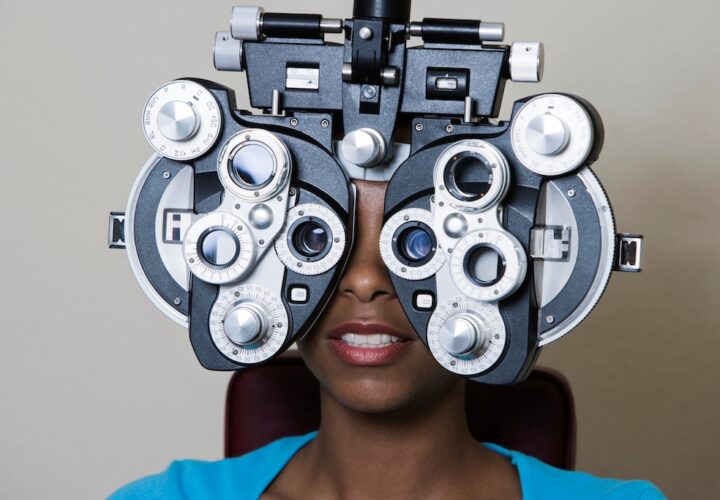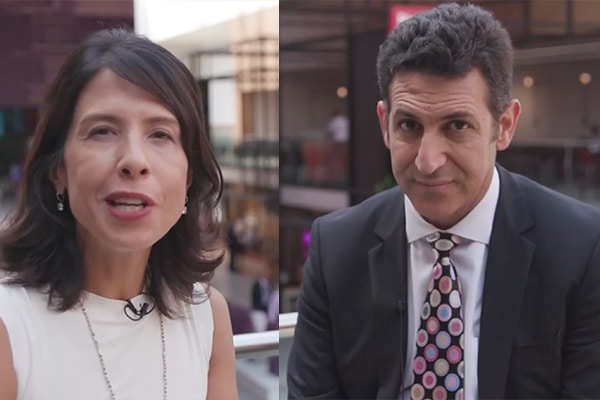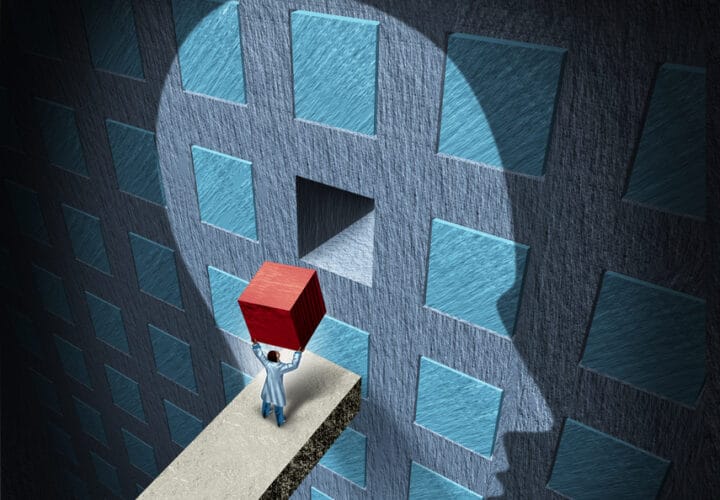Johns Hopkins neuropsychiatrist Chiadikaobi Onyike the need to develop new instruments that accurately capture the symptoms of early-onset Alzheimer's.
The number of people with early onset Alzheimer’s is predicted to rise by 20 percent over the next four decades, with more than 50,000 cases expected in the UK by 2051. Currently there are 200,000 people in the U.S. with the condition. These numbers are only estimates and the rate could be higher. Diagnosing the condition is challenging because it doesn’t always mean a loss of memory like the late onset form of the disease.
Being Patient talked to Dr. Chiadikaobi Onyike, a neuropsychiatrist at Johns Hopkins University, who co-directs their Frontotemporal Dementia and Young-Onset Dementias Clinic, about why there’s a need to develop new instruments that accurately capture the symptoms of early onset Alzheimer’s.
- Anyone under 65 years old with Alzheimer’s is considered ‘early onset’
- The first stage of early-onset Alzheimer’s is not associated with memory loss
- Abnormalities in visual processing are a sign of early-onset Alzheimer’s
Being Patient: How do the symptoms of early onset Alzheimer’s or dementia differ from the more common kind that comes with old age?
Dr. Chiadikaobi Onyike: Young onset Alzheimer’s disease is often not dominated by memory problems. In fact, sometimes, at the time it presents, memory is fine. What people may have are problems with visual perception, so making sense of what they see, or problems with verbal communication, so they can’t produce speech or they don’t quite understand what they hear. They can also have problems with skilled movements, so they become clumsy because they lose this innate knowledge of how certain actions are executed. With these symptoms the breakdown is not usually in the hippocampus [the region of the brain associated with memory] although they may also have some hippocampal atrophy.
Being Patient: In your research, are you hoping to develop a better understanding of how to diagnose the early onset Alzheimer’s?
Dr. Chiadikaobi Onyike: We’re trying to develop clarity around these phenotypes [presentations of symptoms]. Today much research talks in terms of typical versus atypical Alzheimer’s disease. Typical usually means that forgetfulness dominates a person’s presentation and atypical means it doesn’t. But there’s increasing evidence, which is consistent with my own experience, that there are other specific phenotypes – abnormalities in visual processing, language use, skilled action and attention. We are beginning to make these phenotypes explicit. We know now, for example, that in these forms of Alzheimer’s disease, brain atrophy patterns that are seen on an MRI are focal, meaning that they mainly involve the areas of the brain that serve those functions. We’re developing concepts, approaches and instruments that capture precisely these deficits, rather than just focussing on memory.
Being Patient: Could that be something like a neuropsychological test that a doctor could use?
Dr. Chiadikaobi Onyike: The ambition is to have a composite instrument that’s fair to all phenotypes when it’s applied to them. When you say someone has mild dementia, even though the deficits might be different, the classification will be faithful to the severity of the condition. As it is today, using the Mini Mental State Exam in a person whose problem is primarily aphasia [problems processing language] or visual perception can give you a misleading read on the severity of the condition. You might underestimate the severity of the dementia because the domain of interest is not properly measured by the instrument.
Being Patient: Does this mean that many people are being missed by the tools that we have now?
Dr. Chiadikaobi Onyike: Delayed diagnosis is a big problem. The diagnostic delay is about three to four years because the complaints often lead them to other types of specialists who then give them a clean bill of health in that area. [Problems with] visual perception are almost the norm for people [with early onset dementia] when they’re in their forties and fifties. Very often, their first complaint might be “I can’t see”, so they’re in the ophthalmologist’s office. The ophthalmologist says there’s nothing wrong with their vision. Sometimes the ophthalmologist has the sophistication to say that this could be cognitive and then a referral is made. We have seen cases where a person is seen by a doctor and, because their scores are high on the usual instruments, they’re told they don’t have dementia. They’re viewed as a person with a psychiatric complaint, like anxiety or depression.
Being Patient: What’s your opinion of online cognitive testing? Is this a useful thing for people to do?
Dr. Chiadikaobi Onyike: I don’t know how useful it is. I think, in principle, it can be helpful. We don’t have enough specialists or professionals to go around and the population burden continues to grow. So, giving people a way to come to a doctor’s office with a result that raises a suspicion and sets off a formal evaluation, I think that could be seen as a useful thing. It’s also an empowering thing. The danger is when it gets over-interpreted. There’s a danger that a person could have test results and over-react. They might miss one question and view that as more meaningful than it really is. But, if it’s accompanied by proper community education, it could be useful.
Being Patient: Where do you see the value in diagnosing someone with early onset Alzheimer’s, when there is no cure? Do you think screening is a good idea?
Dr. Chiadikaobi Onyike: From the point of view of getting people into trials earlier and from the point of view of studying those early stages so that we can learn how to interrupt them, screening would be helpful. I think wholesale population screening is impractical. For young onset dementia, it would be especially impractical because you would have to screen so many people in order to get one case. Sensitizing the specialists and the doctors so that when a complaint arrives it’s recognized for what it is and warrants an investigation [would make sense]. I think the big problem is that people go to a doctor with subtle complaints and are given a bedside instrument. They achieve a normal score and they get reassurance and the reassurance might be premature. But the general practitioners don’t necessarily know that. Now, should everyone get a scan at that stage? Probably not but a referral or a phone consultation with a specialist would be in order.



